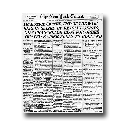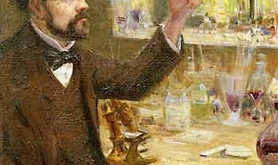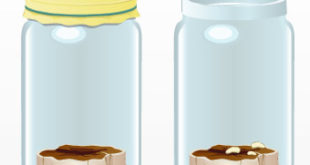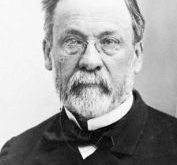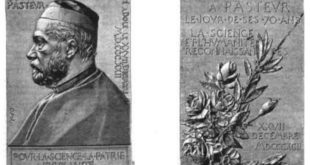Harding, Wilson and Taft Send Messages to the Centenary Meeting in Philadelphia
PHILADELPHIA, Dec. 27 — Messages of appreciation of the great humanitarian work accomplished by Louis Pasteur were read here today from President Harding, Woodrow Wilson, Chief Justice Taft and many others at the centenary celebration of the French scientist’s birth. Jules Jusserand, French Ambassador to the United States, spoke of Pasteur as the greatest of the immortals of France.
“The wonderful advances of medicine and surgery are the direct results of Pasteur’s life and work,” said President’s Harding’s message. “Already many infectious diseases have been conquered and as a result the length of human life has increased. America has been among the first nations to apply Pasteur’s work to practical use. The building the Panama Canal was made possible by knowledge of the germs of yellow fever.”
After expressing regret that he could not be present, former President Wilson’s message said, in part:
“I can see that it is his (Pasteur’s) immortal distinction that he not only broadened the thought and enlightened the practice of the great medical profession in the treatment of certain diseases, but also erected barriers against all disease.”
Hailed as Great Benefactor
Pasteur was hailed as “one of the greatest benefactors of the human race in all history” by Chief Justice Taft. “His name,” the message said, “must be preserved and revered in order to inspire others to new revelations of the laws of God for the benefit of man.”
Dr. Etienne Burnet, Director of the Pasteur Institute at Tunis, Africa, arrived as the centenary observation was concluded. He was sent as a special representative by the French Government and made the voyage across the Atlantic in the French liner Savoie, which was delayed by strom and fog.
Dr. Vernon Kellogg, Chairman of the National Research Council at Washington, said in his tribute to Pasteur:
“He proved the eccentricity of the origin of genius, which is an assuring thing for democracy. Out of the humblest family,l given the opportunity that a democratic form of government gives, may come and arise to leadership the man or woman endowed with genius.”
Jusserand Pays Tribute
TORONTO, Dec. 27 — Delegates from the Federation of American Societies for Experimental Biology celebrated the centenary of the birth of Louis Pasteur at a dinner which opened a conference in this city tonight. Addresses were given by Professor Graham Lusk of Cornell and Professor H. G. Nooy of the University of Michigan.
Homage Paid in France
Special Cable to the New York Times
PARIS, Dec. 27 — One hundred years ago, in the little City of Dole in the Vosges, one of the greates French thinkers and scientists, Louis Pasteur, was born, and France today honored his memory. The centenary celebration was held in Paris, at which President Mitterand and members of the Government were present, while men of science from the whole of France and representatives of foreign universities and seats of learning (blurred) in paying homage to the great benefactor of mankind.
The place fittingly chosen for the meeting was the grand amphitheatre of the Pasteur Institute. Professor Roux, Pasteur’s successor as head of this perhaps most famous scientific institute of the world, presided.
Among those who gathered to celebrate Pasteur’s memor were representatives fo the French Army. Thanks to Pasteur’s discoveries, it is calculated the lives of 500,000 soldiers were saves.
Following several speeches recalling the inestimable services rendered to humanity by Pasteur, delegations descended into the crypt where Pasteur’s body reposes in a marble sarcophagus.
Simultaneously a great mass meeting was held by students of the Paris University in the Sorbonne. Similar meetings were organized at all French universities.
PARIS, Dec. 27 — (Associated Press) — Cardinal Dubois celebrated mass today in the Paris church where Pasteur was wont to worship. Pasteur’s daughter, Mr. Vallery-Radot, and her husband and son were present.
Students of the Pasteur Institute, who had been joined by 200 students from Brussels, visited Pasteur’s birthplace at Dole, where a memorial ceremony was held.
Originally published on December 28, 1922 in The New York Times
 Pasteur Brewing Louis Pasteur – Science, Health, and Brewing
Pasteur Brewing Louis Pasteur – Science, Health, and Brewing 